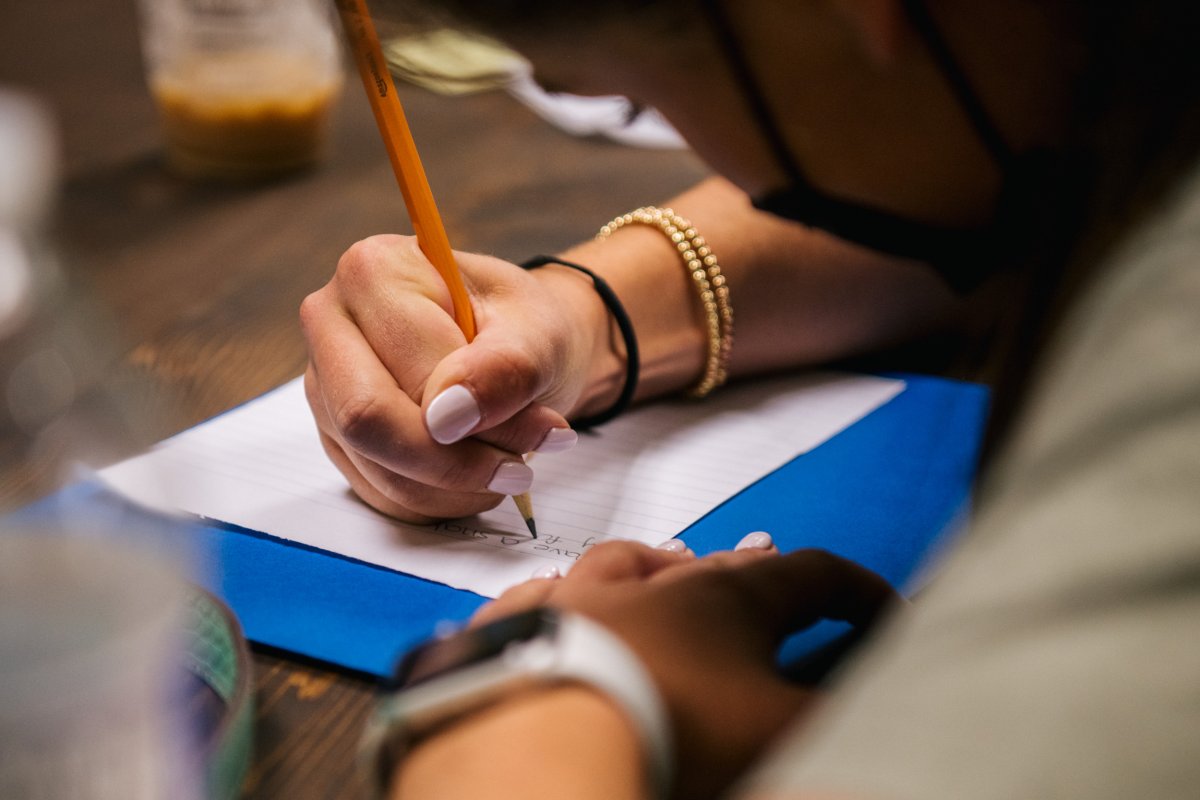Our collective pandemic exhaustion has reached new lows, further eroding what little empathy we had left for one another. As rancorous debates over school openings, mask mandates and how racism is taught rage on, our political divisions have hardened. Even those of us who used to agree now have walls rising between us.
In the face of deepening polarization and persistent injustices, many civic educators have been updating their practices to teach young people more constructive skills for engaging in democratic life. Revamped civics programs not only teach students about history and government, but also develop their capacities to detect misinformation, engage in civil deliberations of controversial public issues and practice public speaking.
Yet even with these promising innovations in educational practices, civics curricula continue to privilege what our society more broadly has privileged: speaking, without the necessary counterpart of listening. To rebuild trust and reset our democracy, we need to teach students to listen empathically in the context of civic life—to listen in a way that allows for emotional connection, in a way that humanizes others, and in a way that enables more people to hear voices that have historically been pushed to the margins.
In our research on a civic education curriculum—Project Soapbox—we found empirical evidence that empathic listening fostered the very democratic skills our society desperately needs. Project Soapbox asks students to select the most important issue facing their community, develop a speech and deliver it to their peers.
We studied the curriculum among high school students in two different school districts: one urban, predominantly Black, Latinx and low-income, the other large, suburban and demographically and socio-economically diverse. Across the two districts, students selected topics ranging from mental health and immigration policy to racism and gun violence. Many shared personal stories to illustrate the human impact of their issue. Our most surprising finding? The greatest impact of this public speaking curriculum came from students actively listening to each other's speeches.
Across more than 250 students in both school districts, as students listened to their classmates' speeches, they reported learning about and valuing new perspectives, gaining empathy for others' experiences, changing their perspectives and deepening their sense of connection and trust with one another. Among the suburban students, three-quarters said that their "empathy and understanding" for their classmates grew.
One student explained that the speeches, "opened up my mind a little bit and helped me understand that there are a lot of things people are dealing with and going through that I'm not aware of. And because of this I need to see things from another's point of view." An adult listener commented, "It is one thing to hear soundbites in the media about an issue or topic—it is another thing to hear from a young person who feels, experiences that issue deeply and personally."

Even more significantly, our research demonstrated that this curriculum provided an educational antidote to what documentary filmmaker Astra Taylor framed as "the larger crisis of American democracy, in which the wealthy and powerful shape the discourse while many others go unheard." The Project Soapbox curriculum put historically marginalized students in the position to share their perspectives while those with greater power—white students, male students, adults—were in the position to hear those perspectives. One white student explained a newfound understanding: "I had never thought about how for a white person, learning to speak Spanish brings more opportunities while a Hispanic person speaking Spanish is seen as a bad thing."
Further, our research confirmed that empathic listening is teachable. The teachers we studied promoted this capacity by building community with exercises that encouraged students to share their values, ensuring that all students had the opportunity both to speak and be heard, and fostering active listening practices. Additionally, the teachers created a willingness among students to be vulnerable and share personal stories related to community issues.
Project Soapbox is just one example of a curriculum that facilitates empathic listening as a part of intentional classroom instruction in civic education. Other programs involve students in carefully structured listening through story exchanges—while those like Storycorps' One Small Step project invite people across the political spectrum to re-establish human connections.
To be sure, civic education should cultivate a broad range of knowledge and capacities. Students should study the history of American democracy, engage in community service projects and learn about voting practices and other forms of political expression.
But as we refocus our nation's educational practices, we should resolve to use our civics classrooms as spaces to repair democracy. By prioritizing the teaching of empathic listening, we stand to not simply replicate the society we have, but create the one we want.
Molly W. Andolina, Ph.D., is an associate professor of political science at DePaul University who studies generational differences in civic engagement, with particular attention to the political activism of millennials.
Hilary G. Conklin, Ph.D., is a former social studies teacher and a professor in the College of Education at DePaul University who studies teacher preparation and civic education.
The views expressed in this article are the writers' own.
Uncommon Knowledge
Newsweek is committed to challenging conventional wisdom and finding connections in the search for common ground.
Newsweek is committed to challenging conventional wisdom and finding connections in the search for common ground.
About the writer
To read how Newsweek uses AI as a newsroom tool, Click here.








